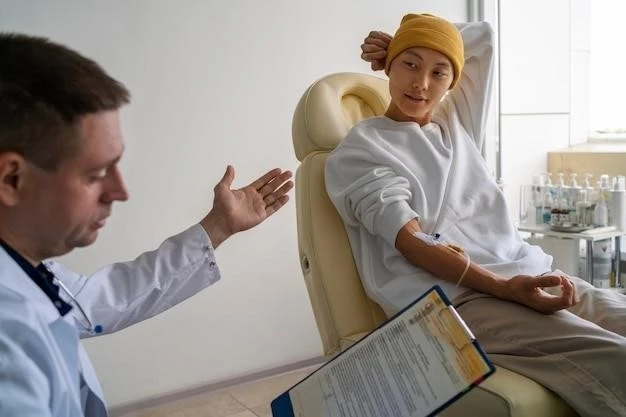Overview of Pseudocholinesterase Deficiency
Pseudocholinesterase deficiency, also known as butyrylcholinesterase deficiency, refers to a rare acquired or inherited defect in the pseudocholinesterase enzyme produced by the liver. In clinical anesthesia practice, the muscle relaxants succinylcholine and mivacurium are drugs used to optimize intubating conditions and surgical exposure.
Definition and Characteristics
Pseudocholinesterase deficiency, also known as butyrylcholinesterase deficiency, is a rare condition that affects the metabolism of certain anesthetic drugs used during medical procedures. This deficiency can lead to prolonged muscular paralysis and poses risks during anesthesia administration. Individuals with this deficiency may experience heightened sensitivity to drugs like succinylcholine and mivacurium, impacting their responses to anesthesia. Understanding the genetic and enzymatic basis of this deficiency is crucial for effective management and safe administration of medications.
Causes and Inheritance Patterns
Pseudocholinesterase deficiency is an autosomal recessive inherited blood plasma enzyme abnormality that affects individuals’ ability to metabolize certain anesthetic drugs like succinylcholine and mivacurium. The impairment in butyrylcholinesterase (BCHE) production can lead to heightened sensitivity to these medications, posing risks during anesthesia administration.
Autosomal Recessive Inheritance
Pseudocholinesterase deficiency follows an autosomal recessive inheritance pattern, meaning individuals must inherit a defective gene from both parents to manifest the condition. This genetic abnormality affects the production of the butyrylcholinesterase enzyme, impacting the metabolism of certain anesthetic drugs. Understanding the inheritance pattern is crucial for identifying individuals at risk and implementing appropriate management strategies.
Pseudocholinesterase deficiency can result in heightened sensitivity to specific anesthetic drugs, potentially leading to prolonged muscular paralysis and complications during anesthesia administration.
Clinical Implications
Pseudocholinesterase deficiency can result in heightened sensitivity to specific anesthetic drugs, potentially leading to prolonged muscular paralysis and complications during anesthesia administration.
Diagnostic testing methods and procedures are essential to identify pseudocholinesterase deficiency, particularly assessing plasma activity levels and genetic testing to confirm the presence of any mutations associated with this inherited enzyme abnormality.
Diagnosis of Pseudocholinesterase Deficiency
Accurate diagnosis of pseudocholinesterase deficiency is crucial for individuals who may exhibit sensitivity to specific anesthetic drugs. Testing methods typically involve assessing the plasma activity levels of this enzyme and conducting genetic testing to confirm any associated mutations that result in this inherited enzyme abnormality.
Effective management of pseudocholinesterase deficiency involves careful consideration of anesthesia options and alternative medications to minimize risks associated with sensitivity to specific anesthetic drugs. Tailored treatment approaches are essential to ensure safe surgical outcomes for affected individuals.
Management and Treatment Approaches
Effective management of pseudocholinesterase deficiency involves careful consideration of anesthesia options and alternative medications to minimize risks associated with sensitivity to specific anesthetic drugs. Tailored treatment approaches are essential to ensure safe surgical outcomes for affected individuals.
The genetic inheritance of pseudocholinesterase deficiency occurs in an autosomal recessive pattern, with varying frequencies among different populations. Understanding the genetic aspects and prevalence is essential for proper diagnosis and management.

Genetic Aspects and Population Prevalence
Understanding the genetic aspects and population prevalence of pseudocholinesterase deficiency is essential for effective diagnosis and management. The condition follows an autosomal recessive pattern of inheritance, with varying frequencies and ethnic variances observed among different populations.
The prolonged muscular paralysis associated with pseudocholinesterase deficiency poses risks during anesthesia administration, emphasizing the importance of careful monitoring and tailored treatment strategies.

Complications and Associated Risks
Pseudocholinesterase deficiency can lead to prolonged muscular paralysis, especially during anesthesia administration. Understanding the associated risks and complications is crucial for safe medical practices.
Ongoing research on pseudocholinesterase deficiency focuses on improving diagnostic methods, exploring new treatment modalities, and understanding the underlying genetic mechanisms to enhance patient care and outcomes.
Research and Advances in the Field
Ongoing research in the field of pseudocholinesterase deficiency is focused on enhancing diagnostic techniques, exploring novel treatment modalities, and understanding the underlying genetic mechanisms contributing to this condition. Advancements in research aim to optimize patient care and outcomes.
Accessing reliable information and support resources is crucial for individuals and families affected by pseudocholinesterase deficiency. Understanding the condition, its management, and available support networks can empower patients to navigate their healthcare journey effectively.
Patient Education and Support Resources
Accessing reliable information and support resources is crucial for individuals and families affected by pseudocholinesterase deficiency. Understanding the condition, its management, and available support networks can empower patients to navigate their healthcare journey effectively.
